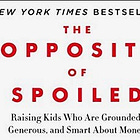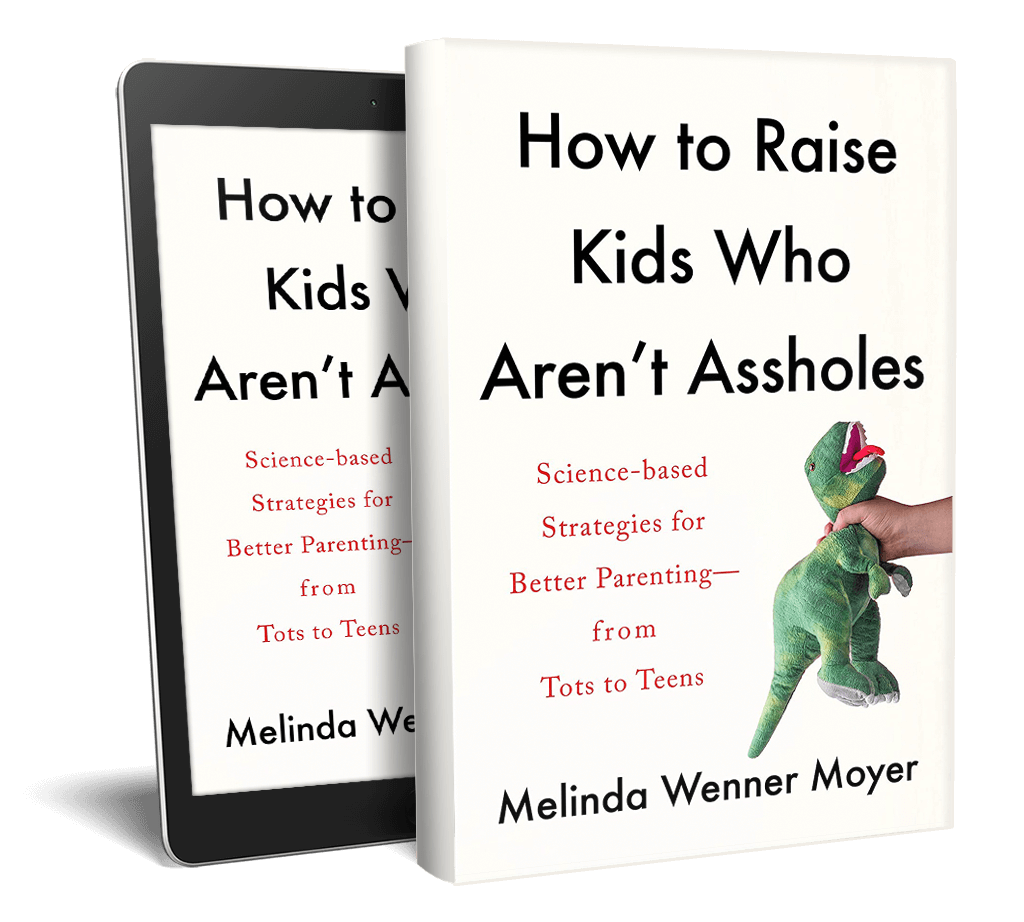How Not to Raise Spoiled Brats
Plus: 20% off paid subscriptions TODAY ONLY! This newsletter just turned three!
Happy birthday to Is My Kid the Asshole?, which, as of yesterday, is three years old!!!! I can’t believe I’ve been writing this newsletter since 2020. You all have come to mean so much to me. Thank you for your unflagging support for what I do here — and for the kindness you show me, and each other, in our online community. As a special token of appreciation, I’m offering 20% off paid subscriptions today only! (With a paid subscription you can, among other things, read my paid newsletter from two weeks ago, which is now my third most popular newsletter ever.)
I don’t know about you, but December is the month when I most question my parenting skills. When my kids become controlling, hyperactive tyrants and I wonder where I went wrong.
An example: We are flying to San Diego over the holidays to visit extended family, which is a privilege and treat. Our flight is on Christmas Eve day, because that’s when we found the best flight options. My kids are LOSING THEIR MINDS over it, accusing us of ruining Christmas by making them take a plane on Christmas Eve. I mean…. I get it. I do. Christmas Eve is a sacred day to them. (God help us if there are delays.) But also, kiddos, how about we take a step back and recognize how awesome it is that we get to fly to an amazing city in California and enjoy Christmas with Grandma, aunts and uncles, and two fun cousins?! How about that, instead!
If your December experience has been anything like mine so far, you may be wondering if you’ve gone and raised spoiled brats. Maybe it’s because your kids are asking for 8,126 things for Christmas or Hanukkah, or because the things they’re requesting are insane. (A few years ago, my son asked Santa for a hotel.) Maybe it’s because you’ve discovered that your child has actually been spending the allowance money from his “Give” jar to buy himself pizza after school. (This definitely didn’t happen to us last week.) Maybe it’s because your kids right now are especially needy, especially meltdowny, especially extra.
I want to reassure you that this behavior is totally normal. December is a hard for month for kids (and, um, PARENTS) for reasons I explained in last week’s newsletter. Still, you might be wondering what you can be doing to address your nagging worries that your kids are becoming entitled. So today I’m re-sharing my post from earlier this year on that exact question. Good luck! And godspeed.
How Not to Raise Spoiled Brats
I’ve got good news: Research suggests that there are concrete steps you can take to raise (at least somewhat) unspoiled kids, and that the magic ingredient may be gratitude. Research has linked feelings of gratitude with less entitlement and materialism, and it makes perfect sense: If you are aware of and feel thankful for what you have, you are less likely to expect and demand even more. (Bonus: grateful kids are happier and more satisfied with their lives than those who are ungrateful.)
Recent studies have shed light on what parents can do to shape gratitude in kids. When Andrea Hussong, a psychologist at the University of North Carolina at Chapel-Hill, and her colleagues asked parents to keep daily diaries as part of a 2019 study, they found that when parents interacted with their kids in certain ways, their kids showed more gratitude. Hussong’s graduate student Rachel Petrie, whom I spoke to earlier this week, recently led a study as part of her dissertation that found that these same strategies led to increases in gratitude in kids that lasted as long as three years.
Thankfully, the strategies are fairly simple.
Model gratitude yourself.
I know I’ve said this approximately eight billion times, but kids learn about how to engage with the world from watching and listening to their parents. If we want our kids to feel grateful for what they have, then we as parents should express gratitude for what we have, too, Petrie said.
You don’t have to make a big show of it — just try to find brief opportunities to express appreciation in front of your kids. Maybe you share how fortunate you feel to have such a cute cat, or that you really appreciated how your co-worker stood up for you yesterday when your boss threw you under the bus. My husband always thanks me for making dinner in front of our kids, and when my kids pitch in around the house I tell them how much I appreciate their help.
Help your child understand what’s behind the gifts (and other nice things) they receive.
It’s easy to assume that kids know what’s involved in gift-giving, but if they haven’t done a lot of gift-giving themselves, they probably don’t. So it can be useful to lay it out for them. When your kid opens a birthday gift from Grandma, you could say something like, “Oh wow, what a lovely gift! Grandma must have spent time thinking about what you like. Then she must have gone shopping to find it. And then, gosh, she had to wrap it, take the gift to the post office, and pay money to send it here. And she had to do all of this well before your birthday so you could get it on time!” (If all this seems over the top, you could highlight just some of this.)
These kinds of conversations don’t have to revolve around gifts, either. Maybe you say, “It was nice that they offered you grilled cheese at the play date, since that’s your favorite food. They must have thought in advance about what you’d like.” Or “It was so thoughtful of your brother to let you order your ice cream first. I bet he wants his ice cream as soon as possible too!”
Give your kids opportunities to experience gratitude.
In the research world, this approach is referred to as “niche selection,” which sounds like a phrase I’d encounter in a Richard Dawkins book. I promise, it’s not. It’s a fancy term for when parents choose activities and environments that provide kids with opportunities to feel grateful, and research suggests that it does, indeed, make kids more grateful.
What does niche selection look like? Well, lots of things. Having your kids write thank-you notes is a form of niche selection (and has been shown to boost gratitude) because it requires kids to think about what they’re received and why they’re thankful for it. My guess is that the more specific your child can be in their note, the better. So it’s not just “Thank you for the t-shirt,” but “Thank you for the T-shirt — it’s my favorite color and I wear it all the time.”
One study found that middle schoolers who were instructed to list five things they were grateful for each day for two weeks reported feeling more gratitude, optimism, and life satisfaction afterwards than students who were told to think instead about the hassles they’d encountered.
Another simple way to use niche selection is to give your kids’ opportunities to do things they enjoy — like taking them and a friend to a movie — and then encouraging them to consider and express their gratitude afterwards, Petrie said. In other words, do nice things for them — but then be sure you give them the opportunity to reflect on their good fortune.
Respond sensitively to your kids’ needs.
This one may seem weird, but bear with me. In Petrie’s dissertation research, she found that children of parents who used the above strategies and who responded sensitively to their kids’ needs were more grateful than the kids of parents who used the strategies but weren’t particularly sensitive to their kids’ needs.
Why might this be? First, sensitive parents may be better at using the above strategies in ways that actually resonate with their kids. Second, it’s likely that responsive parenting helps kids develop empathy, and that empathy plays a role in the development of gratitude, Petrie said. In order for a kid to understand why they should be thankful for what someone did for them, and why they should express their thanks, they have to be able to put themselves in the gift-giver’s shoes — and that requires empathy. They have to be able to consider all the things Grandma had to do to get them such a wonderful gift, and they have to recognize how it would make Grandma feel to say (or not say) thank you.
If you’re interested in learning more about the science on fostering empathy and compassion in kids, check out my book. Also! Hussong and her colleagues have developed a wonderful free 30-minute program, Raising Grateful Kids, designed to teach parents and caregivers how to foster gratitude in their kids (especially teens and tweens). Check it out here.







So, I got into the habit of always thanking my husband for making dinner (I read, years and years before I even met him, that the secret to a happy marriage was to notice and acknowledge the things your partner did), and when my son started talking one of the first things he did was always thanked daddy for dinner. It was so surprising the first time that I was just in shock! Then he did it over and over again, multiple times every dinner, lol. I love the idea of talking kids through what went into a gift or kind gesture. It's such a good idea.
Actual lol at asking Santa for a hotel! I love it. I teach intro psych and developmental psych to college students, and just a few weeks ago I was talking about how there are all these studies of gratitude and how it increases feelings of well-being. It sounds like this sort of squishy and nebulous concept, but it's really interesting to think about how people have quantified it and used it as a variable in some of these studies. Also I really liked the point about sensitivity to kids' needs. This is also something I try to impress upon my students when I teach them about the development of attachment -- the key variable is sensitivity, rather than any particular behavior on the parents' part, because what one kid needs is different from another kid. Basically this post made me nerd out, is what I'm saying. :D